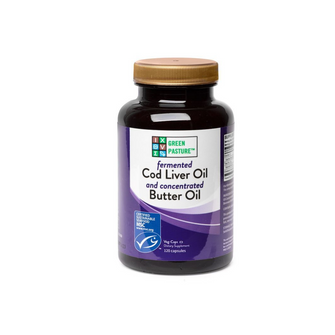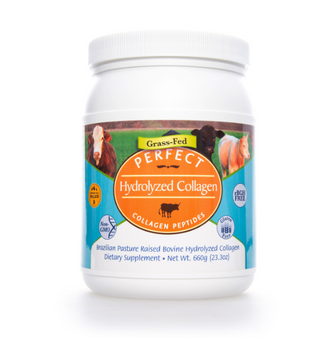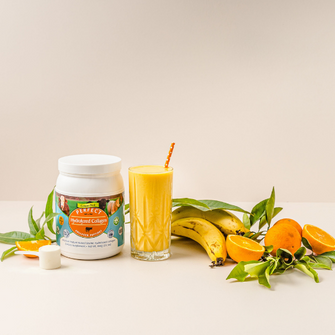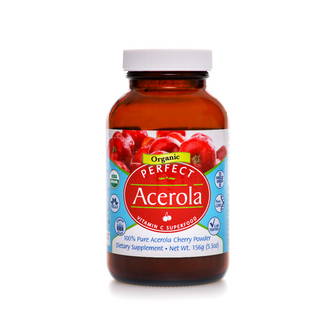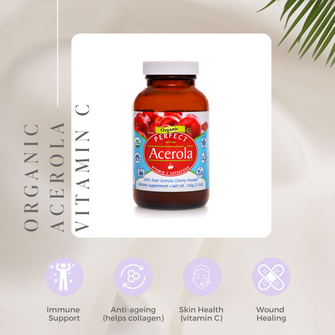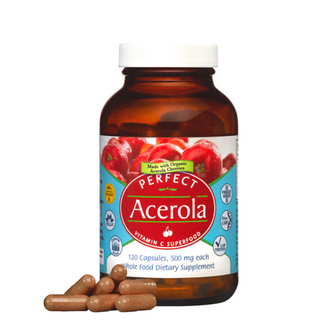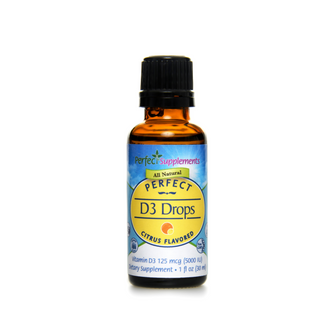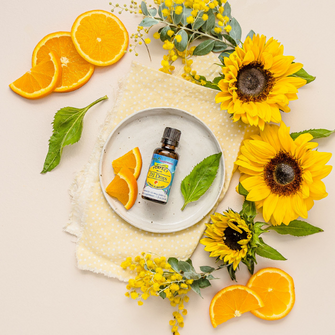Categories
Related Products
Looking after our bones isn't always something we think about until it's too late so we hope today's blog article inspires you to take the best care of your bone health (and health in general). 😊
The thing is, our bones are vitally important for supporting our body and allowing us to move. Our bones help to protect our heart, our brain and other organs from injury.
Our bones are a living (and growing) tissue and they're comprised of protein, collagen, connective tissue, bone marrow and minerals (particularly calcium).
In a human bone, you'll find 4 types of cells:
- Osteoblasts
- Osteocytes
- Osteoclasts
- Bone lining cells
Eating a wholesome, nutrient-dense diet, taking bone-loving supplements and watching your lifestyle habits closely can have a huge impact on the health of your bones, now and in the future.
Living a life of prevention is the way to go!
In today's blog, we won't just give you tips on the best supplements for bone health but also the best foods, worst foods and best and worst lifestyle habits for your bones.
Best Foods for Bone Health
It's important to mention that eating a variety of fresh, whole foods is the key to obtaining the minerals and other nutrients that your bones love and need.
- Dark leafy green veggies* (rich in calcium and vitamin K)
- Potatoes* (the skins in particular are an excellent source of potassium)
- Citrus fruits (high in vitamin C)
- Kiwi fruit (high in vitamin C)
- Acerola cherries (VERY high in vitamin C)
- Fresh figs (contain calcium, magnesium and potassium)
- Wild-caught salmon and trout (vitamin D and omega-3)
- Almonds and almond butter (rich in calcium and potassium)
- Prunes (known to help improve bone density)
- Full-fat dairy (much more nutritious than low-fat options)
- Sesame seeds or tahini (rich in calcium)
- Sardines, oysters & prawns (contain calcium, B12, selenium and zinc)
- Organic pasture-raised eggs (incredibly nutrient-dense)
*Try to source organic where possible so you can eat the skins etc. Conventional produce contains harmful pesticides/herbicides etc that disrupt the gut microbiome and cause health issues.
Worst Foods for Bone Health
The foods listed below can seriously deplete your bones of nutrients (not to mention the inflammation that they can cause as they often contain harmful oils like canola and soybean etc.). Processed and junk foods often contain additives, flavourings and preservatives as well as refined sugar.
Being mindful of our intake (keeping these things to a minimum) is the key to being optimally well now and in the years to come.
- Processed foods
- Takeaway foods
- Junk foods
- Canned foods
- Frozen meals
- Fried foods
Best Supplements for Bone Health
Taking high-quality supplements (like the ones we stock) can help you to boost the nutrition in your diet, filling in nutritional gaps. Below is a list of our favourite supplements for bone health.
- Vitamin D3
- Acerola cherry
- Hydrolyzed collagen (learn more below)
- Cod liver oil capsules
- Cod liver + concentrated butter oil capsules (these are my pick all day long as they contain D3, K2 and omega-3 for better bone health)
How Vitamin D3 Can Help Our Bones:
Vitamin D is crucial for the absorption of calcium into our bones, so if you're deficient (and many people are), you could really be setting yourself up for problems down the track?
Vitamin D3 (as a supplement) works better when K2 is present so for this reason, I prefer to take the cod liver oil + concentrated butter oil capsules plus this way I not only get D3 & K2, but also vital omega-3 as well!
How Vitamin C Can Help Our Bones:
Vitamin C plays a vital role in bone health because it helps the body to produce collagen (so as we age we can use all the help we can)! Vitamin C is important for helping to maintain bone health but it also helps hunt down those pesky free radicals (that age us and cause inflammation).
How Collagen can Help Our Bones:
Hydrolyzed collagen (collagen peptides) have been to believed to help support bone health and bone strength.
Did you know that our bones are made mostly of collagen - more than 90% of the organic matrix!
As you probably know, we lose collagen as we age so taking a high-quality collagen supplement such as the Perfect brand, is not just important, it's actually a necessity!
If you're yet to add collagen to your life, there is no better time than now, you are never too old to start!
I would also recommend getting D3, K2 and omega-3 into your diet (my recommendation is above) as well as a high-quality source of vitamin C (the Perfect Acerola cherry).
Nutrition is one of the most important factors that impacts our health and the prevention of disease, so be sure to be eating right and getting extra nutrients in via supplementation. This can really help to move the needle of your health in a positive direction.
How Can Cod Liver Oil Help Our Bones:
Cod liver oil can be a better option for obtaining omega-3 (compared to fish oil) as fish oil isn't always what it's cracked up to be. You can read about the differences between cod liver oil and regular fish oil in our blog article here.
Cod liver oil also contains vitamin A, which we need for eye health*, immune system and brain function and skin health.
*The vitamin A in cod liver oil may help to prevent degenerative eye diseases such as glaucoma and age-related macular degeneration (AMD).
The omega-3's in cod liver oil can help our body to fight inflammation, protect ouir joints, protect our eyes, our heart, our brain and much more!
We digress... back to the bone benefits of cod liver oil!
Cod liver oil can especially help our bones after age 40 and that is because after age 40, we start to lose bone mass, so we must ensure we are getting optimal vitamin D through supplementation.
As mentioned earlier, vitamin D helps our bones to absorb important calcium and cod liver oil is a fab source of vitamin D3, making it a great choice!
Best lifestyle Practices for Supporting Your Bones
Each day gives us an opportunity to look after our bones by the activities we participate in. We all lead busy lives but we can take some time out of each day to do a few weight-bearing or resistance or other exercises.
- Lifting weights/weight-bearing exercises
- Yoga (strength & balance-enhancing)
- Handstands against a wall (if you're game) 🙃
- Exercise in general (as long as not too strenuous/stressful)
- Resistance training
- Box jumps
Worst Lifestyle Habits for Your Bones
- Sitting excessively
- Being sedentary (too much time on screens or laying around)
- Smoking
- Too much alcohol consumption
- Too much consumption of refined sugar
- Too much bad food (listed above)
- Staying indoors too often and not getting sunshine on your skin
- Long bike rides frequently that are not balanced out by strength training/resistance training*
*Cycling is not a weight-bearing activity nor does it increase bone density so if you're an avid cyclist (doing big kilometres) just be sure ti be also lifting some weights or some kind of weight-bearing exercise.
We hope you found this blog useful and it adds value to your life.
Tam
References:
https://orthoinfo.aaos.org/en/staying-healthy/calcium-nutrition-and-bone-health
https://www.webmd.com/osteoporosis/ss/slideshow-bone-wreckers
https://www.webmd.com/osteoporosis/ss/slideshow-superfoods-for-your-bones
https://healthybonesaustralia.org.au/your-bone-health/calcium/
https://www.ncbi.nlm.nih.gov/books/NBK45523/
https://privatelondonrheumatologist.com/what-are-the-worst-foods-for-osteoporosis/
https://www.getwellen.com/well-guide/sugar-and-bone-health-what-you-need-to-know
https://my.clevelandclinic.org/health/body/22818-bone-marrow
https://www.niams.nih.gov/health-topics/what-bone
https://www.niams.nih.gov/health-topics/kids/healthy-bones
https://www.ncbi.nlm.nih.gov/pmc/articles/PMC2577747/
https://pubmed.ncbi.nlm.nih.gov/26343111/
https://www.ncbi.nlm.nih.gov/pmc/articles/PMC3257679/
https://www.healthline.com/nutrition/9-benefits-of-cod-liver-oil
Disclaimer: the information in this article is intended purely as information and not health advice. It is not intended to treat, diagnose, prevent or cure and one should always seek expert advice from their trusted health practitioner.


